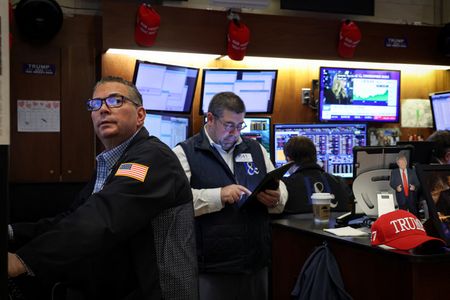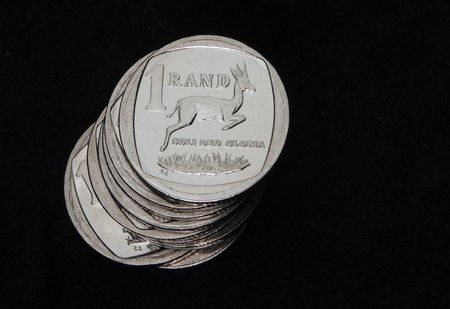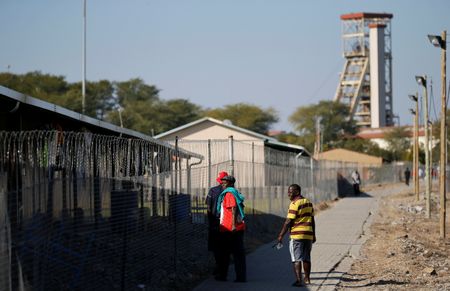HOUSTON (Reuters) – Oil prices fell more than 1% on Friday and were headed for their first monthly drop since November, as markets braced for Washington’s new tariffs and Iraq’s decision to resume oil exports from the Kurdistan region.
Uncertainty surrounding OPEC’s production resumption plans in April and ongoing talks to end the war in Ukraine also weighed on investor sentiment.
The more active May Brent crude futures fell 82 cents, or 1.11%, to $72.75 a barrel by 11:57 EST (1657 GMT). U.S. West Texas Intermediate crude futures were at $69.73 a barrel, down 62 cents, or 0.88%.
Front-month Brent, which expires on Friday, traded at $73.16, down 88 cents, or 1.19%.
Both benchmarks are on track to post their first monthly decline in three months.
Baghdad is set to announce the resumption of oil exports from the semi-autonomous Kurdistan region through the Iraq-Turkey pipeline, according to an Iraqi oil ministry statement.
Iraq will export 185,000 barrels per day through state oil marketer SOMO, and that quantity will gradually increase, the ministry said.
Despite the expected announcement, eight international oil firms operating in the Kurdistan region said they would not be resuming exports on Friday as there was no clarity on commercial agreements and guarantees of payment for past and future exports.
“The resumption of exports raises questions about how Iraq will comply with its OPEC+ obligations, having already regularly produced above its quota,” said Harry Tchilinguirian, head of research at Onyx Capital Group.
“If OPEC+ delays a 120,000 bpd return of voluntary cut barrels starting in April, then the increase in Iraq will exceed that restraint,” he added.
OPEC+ is debating whether to raise oil output in April as planned or freeze it as its members struggle to read the global supply picture, eight OPEC+ sources said.
A delay could break prices out of the current range in which they have been trading, said Phil Flynn, senior analyst with Price Futures Group.
“Currently, oil prices are fluctuating within a trading range, but a delay will give prices an upside breakout,” Flynn wrote in a research note. “Generally, the seasonality of oil, gasoline, and diesel becomes bullish around Easter anyway.”
Economists at Fitch’s BMI research unit said market participants are struggling to gauge the impact of all the energy-related policy announcements made by U.S. President Donald Trump’s administration this month.
Trump on Thursday said his proposed 25% tariffs on Mexican and Canadian goods will take effect on March 4, along with an extra 10% duty on Chinese imports.
Traders are reducing risks amid rising volatility sparked by Trump stepping up the tariffs war, not least against China, significantly raising concerns about global demand, said Ole Hansen, head of commodity strategy at Saxo Bank.
A tariff war could slow global growth, spark inflation and, in turn, suppress crude demand.
A Reuters poll showed Brent would average $74.63 per barrel in 2025, while U.S. crude is projected to average $70.66.
Still, oil prices climbed more than 2% on Thursday as supply concerns resurfaced after Trump revoked a licence granted to U.S. oil major Chevron to operate in Venezuela.
(Reporting by Erwin Seba in Houston, Florence Tan, Mohi Narayan, Enes Tunagur and Arunima Kumar; Editing by David Evans, Kirsten Donovan and Nia Williams)











